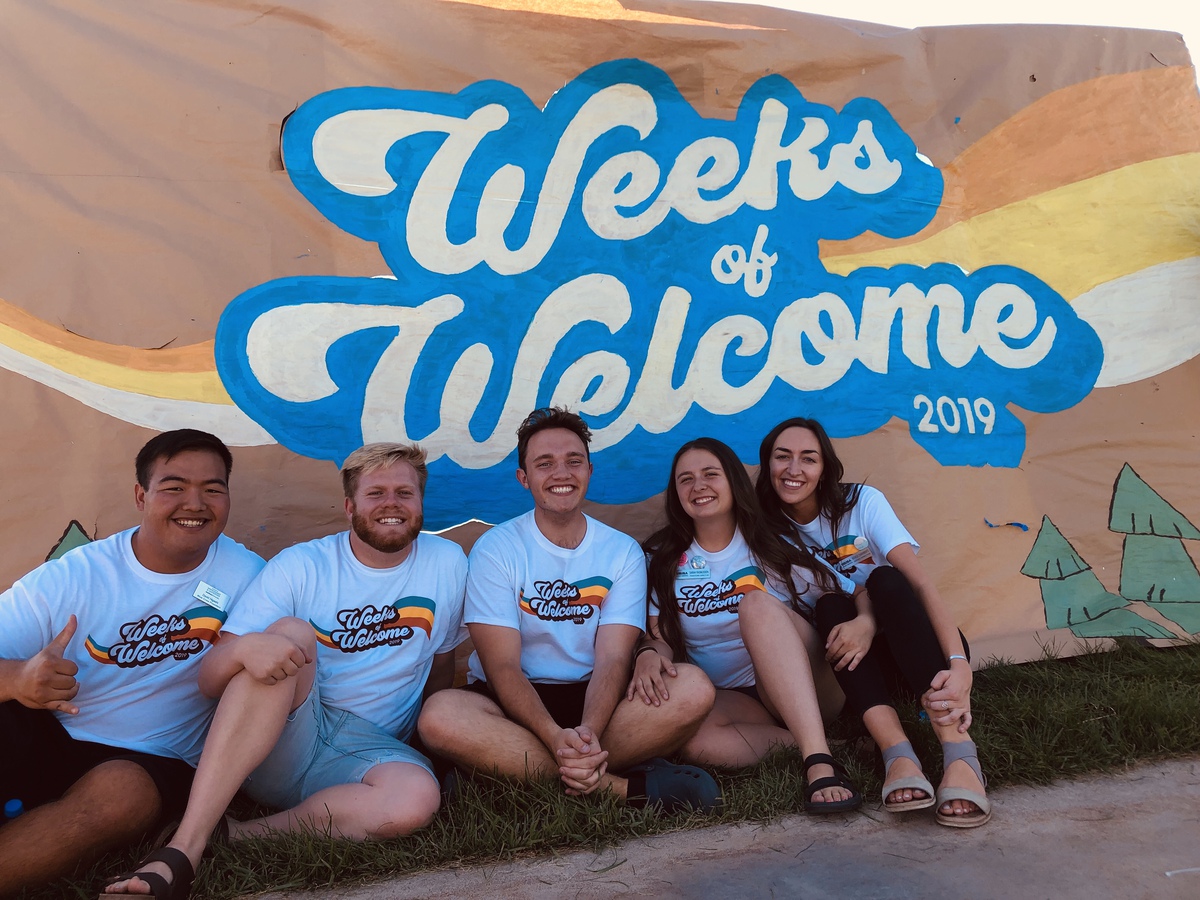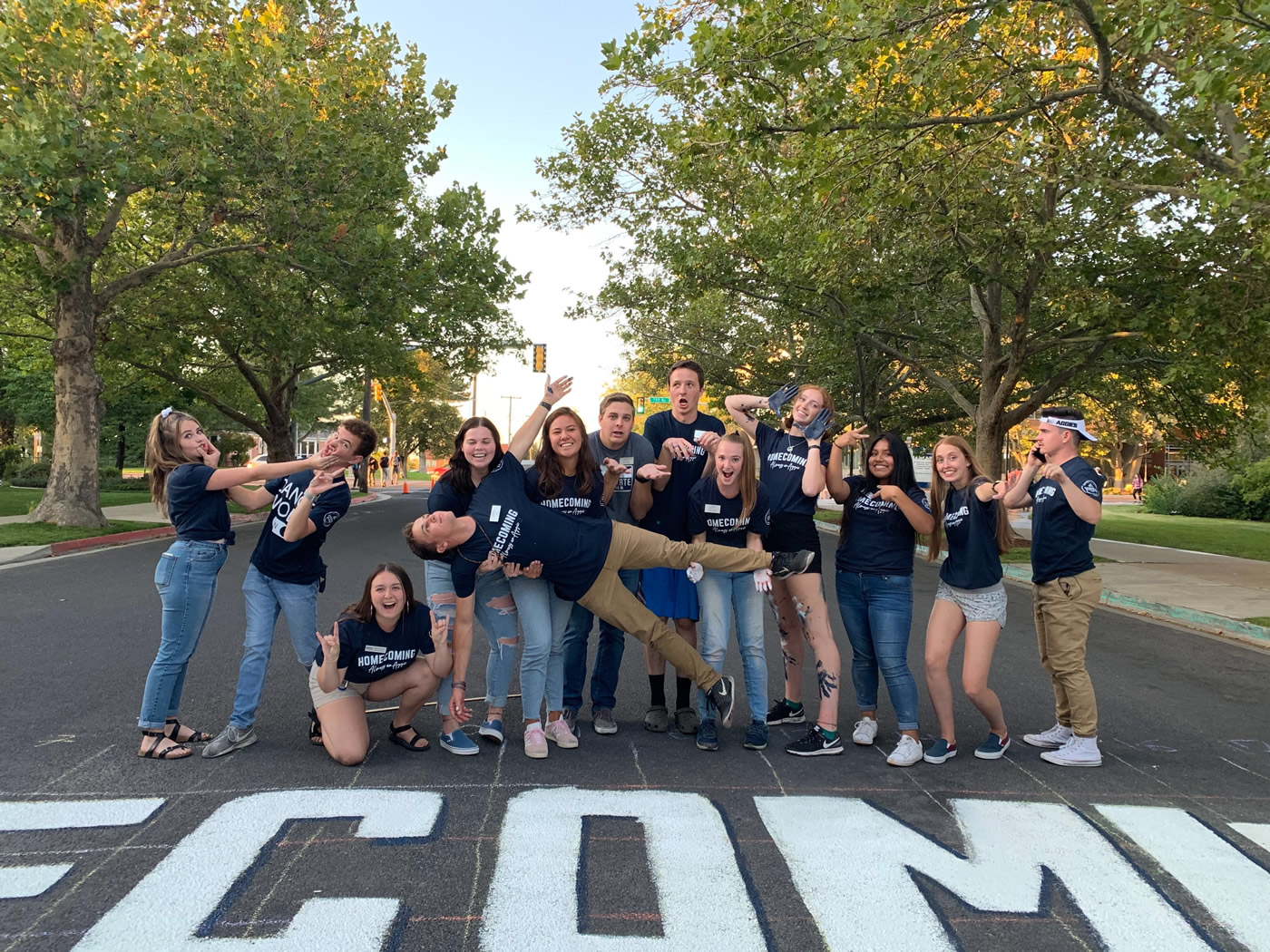Involved students more likely to graduate

The Center for Student Analytics at Utah State University has analyzed numerous amounts of data over the past couple of years, and the numbers paint an important picture for USU's Student Involvement & Leadership Center, which is home to 22 student government officers and myriad clubs and organizations.
According to the data, scholarshipped and volunteer student participants in Utah State University Student Association (USUSA) organizations persist at a rate 3.26% higher than expected when compared to their non-participant peers. This is one of the most statistically significant boosts out of all the data analyzed, and equates to roughly one hundred thousand dollars in retained tuition money.
SILC Associate Director Spencer Bitner said these numbers are even more impressive when broken down because that boost in success rates comes from a tier of already high-performing students.
“We as an office are one of the only places that affect the students in the top quartile,” Bitner said. “When we keep students here, who are high-achieving students, and increase their likelihood of staying here and persisting, nothing else does that. Everything else lives in the third quartile in the below average. That was something that was fascinating, we didn't expect that when we ran the data.”
Senior David Higashi has been involved in various USUSA organizations since he arrived on campus as a freshman from Hawaii. Away from family and friends, the councils and committees offered him a home away from home and have played in integral role in his Aggie experience.
“I do feel like it has helped me become a better student. I didn't have any support system or group or people that were close by … my family or friends, that I could talk to or spend time with. It was more of a self-act to kind of make myself busy or find ways to not be homesick or missing other people, keeping my mind here or present in the moment,” Higashi said.
“For me especially, is that the bonds that I create with the people I work with goes past just the committees that we're on or the work that we do. It goes on to become friendships. We see each other in classes, sometimes we have classes together and that way we help each other. We're able to build off of each other's experiences and learning and knowledge. I think that's how it shaped my experiences and being involved helped make wanting to go to classes, wanting to be here, wanting to show up and making me want to do all these things to better myself. I think that's how being a part of a USUSA organization has really helped me.”

From student government to student clubs to the Spirit Squad and student media, USUSA offers students multiple opportunities to participate in leadership positions, interest groups and service opportunities. This past year alone, hundreds of students participated through dozens of USUSA organizations totaling thousands of volunteer hours.
“It's really fun to watch them develop, because the trajectory that they end up on is always… there's this small spark or they have an interaction that starts a small spark with them and then they develop as a citizen scholar, and that's what we're trying to develop at Utah State University. Then they impact other students in that same way,” Bitner said.
Regardless of which organization they're involved with, the feeling of belonging and purpose students get explains why their USUSA involvement leads to greater academic success.
“I think a lot of times we look at our futures when we're here at college and we look at what our jobs will be and what we'll want to do and I think sometimes we kind of focus on that too much, where we don't consider what's happening now and living in the moment,” Higashi said. “College is a one-time experience and a lot of times we just are so goal-set on getting to our careers and paths that we don't spend time to do all the fun stuff like going to events and being here and having a good time and making the most out while we're here.”
Making those networks and bonds can help you in the future as well and having a good experience in your time here helps you to be motivated to stay here. I feel like a lot of people don't realize what events actually do to serve a purpose of the college experience past the classroom. My advice would be to take time to be here with the people around you and make the investment of not only your classroom and career aspirations, but also just socially and build who you are as a person and find that here.”
Writer: Timothy R. Olsen | timothy.olsen@usu.edu

